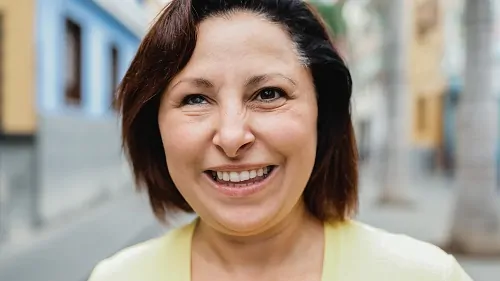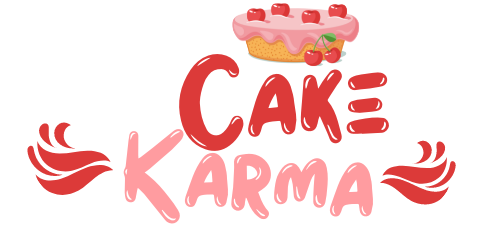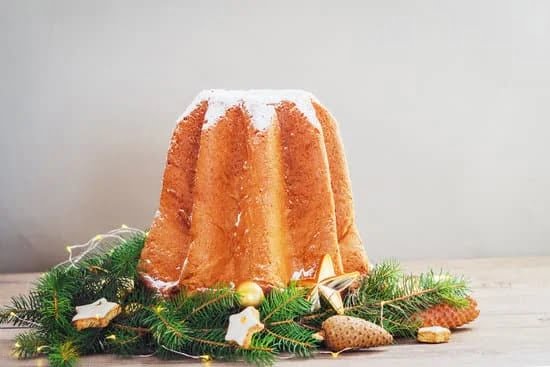How long does it take to become a cake decorator? Cake decorating is a highly sought-after skill in the culinary industry, with a growing demand for skilled professionals who can create beautifully designed and expertly crafted cakes. In this article, we will explore the various pathways to becoming a cake decorator, including formal education, apprenticeships, and on-the-job training.
We will also discuss the duration of culinary school programs specializing in cake decorating, as well as specialized training courses, apprenticeships, internships, and the certification process. By the end of this article, you will have a realistic overview of the timeline to become a proficient cake decorator and insights into potential career prospects in this field.
Educational Requirements
Becoming a successful cake decorator requires a combination of skill, creativity, and technical knowledge. While some individuals may possess natural artistic talents, pursuing formal education can provide a solid foundation for a career in this field. There are several pathways to becoming a cake decorator, including formal education, apprenticeships, and on-the-job training.
Formal education in the culinary arts is often viewed as an important step towards becoming a proficient cake decorator. Many aspiring professionals choose to enroll in culinary arts programs that offer specialized courses in pastry and baking. These programs typically vary in length, with some diploma or certificate programs taking about 6-12 months to complete and associate degree programs lasting around 2 years.
Apprenticeships and on-the-job training are also valuable options for individuals looking to enter the world of cake decorating. Apprenticeships can last anywhere from 1-3 years and provide hands-on experience under the guidance of experienced professionals. On-the-job training at bakeries, pastry shops, or catering companies can also be beneficial for learning specific techniques and gaining practical skills in real-world settings.
| Pathway | Duration |
|---|---|
| Formal Education (Culinary Arts Program) | 6 months – 2 years |
| Apprenticeship | 1-3 years |
| On-the-Job Training | Varies |
Duration of Culinary School
Becoming a skilled and proficient cake decorator requires a solid foundation in the art of baking and pastry, as well as specialized training in cake decorating techniques. Aspiring cake decorators have several educational pathways to choose from, including formal education at culinary schools, apprenticeships, and on-the-job training. The duration of a culinary arts program specializing in cake decorating can vary depending on the type of institution and the intensity of the program.
Many culinary schools offer diploma or certificate programs specifically focused on baking and pastry arts, with an emphasis on cake decorating. These programs typically range from 6 months to 2 years in duration. Students enrolled in these programs learn the fundamentals of baking, pastry production, and advanced cake decorating techniques. They also gain practical experience through internships or externships at bakeries, confectioneries, or specialty cake shops.
In addition to traditional culinary school programs, some aspiring cake decorators may opt for shorter specialized courses or workshops focused solely on cake decorating. These intensive courses can range from a few days to several weeks in length and provide in-depth instruction on specific decorative techniques such as fondant modeling, sugar flower crafting, and themed cake designs.
While not as comprehensive as a full culinary arts program, these specialized courses can be an efficient way for individuals to acquire specific skills in a shorter time frame.
| Program Type | Duration |
|---|---|
| Culinary Arts Program Specializing in Cake Decorating | 6 months to 2 years |
| Specialized Courses/Workshops | Few days to several weeks |
Specialized Training
Courses and Workshops
For individuals looking to specialize in cake decorating, there are various opportunities to enhance their skills through specialized courses and workshops. These programs typically range in duration, from a few days to several weeks, depending on the level of expertise being offered. Basic courses may cover fundamental skills such as icing techniques and piping, while more advanced workshops delve into sculpting, sugar art, and advanced design concepts.
Advanced Techniques
Mastering advanced techniques in cake decorating often requires dedicated study and practice. Depending on the specific skills being pursued, individuals may spend anywhere from a few weeks to several months honing their abilities. This includes learning about intricate piping designs, sophisticated fondant work, and complex sugar flower crafting. Additionally, some professionals choose to further their education by studying under renowned cake decorators or attending specialized programs abroad.
Artistic Skills
Developing artistic skills in cake decorating is an ongoing process that involves continuous learning and refinement. Courses focusing on design principles, color theory, and composition may last anywhere from a few days to several weeks. Furthermore, mastering the artistry of cake decoration often involves regular practice outside of formal training environments to truly develop a unique style and aesthetic sense.
Apprenticeships and Internships
There are various avenues for aspiring cake decorators to gain practical experience in the industry, including apprenticeships and internships. These programs provide individuals with the opportunity to work alongside experienced professionals, develop their skills, and learn about the day-to-day operations of a bakery or cake decorating business.
Duration of Apprenticeship Programs
The duration of apprenticeship programs for cake decorating can vary depending on the specific requirements of the program and the level of expertise sought by employers. Typically, apprenticeships can last anywhere from 1 to 3 years, during which apprentices work under the guidance of a mentor or seasoned cake decorator. This hands-on training allows individuals to refine their skills in cake design, icing techniques, and working with different mediums such as fondant or gum paste.
Internships for Aspiring Cake Decorators
Internships in cake decorating offer students and entry-level professionals the chance to gain practical experience in a professional setting. The duration of internships can range from a few weeks to several months, providing participants with exposure to real-world projects and client interactions. Through internships, individuals can develop their artistic abilities, time management skills, and an understanding of the business side of cake decorating.
The Importance of Hands-on Experience
Both apprenticeships and internships play a crucial role in the development of aspiring cake decorators by allowing them to apply their theoretical knowledge in a practical setting. This hands-on experience not only enhances technical skills but also fosters creativity, problem-solving abilities, and teamwork. Ultimately, these opportunities can help individuals build a strong foundation for a successful career in cake decorating.
Aspiring cake decorators should consider pursuing apprenticeships or internships to complement their formal education and gain valuable real-world experience in the field.
Certification Process
Becoming a certified cake decorator involves obtaining professional certification, which establishes one’s expertise and proficiency in the field. The certification process typically includes meeting specific criteria and successfully completing an examination to demonstrate knowledge and skills. Below is an outline of the time frame for obtaining professional certification in cake decorating, including necessary criteria and the examination process.
Necessary Criteria for Certification
To be eligible for professional certification in cake decorating, individuals are required to have a certain level of experience and education in the field. This may include completing a formal education program in culinary arts with a focus on pastry and baking, gaining practical experience through internships or apprenticeships, or acquiring specialized training in cake decorating techniques.
Examination Process
The examination process for obtaining professional certification in cake decorating typically involves both written and practical components. Candidates are evaluated based on their knowledge of various cake decorating techniques, as well as their ability to demonstrate these skills through hands-on tasks such as piping, fondant work, and intricate design creation.
Time Frame for Certification
The time frame for obtaining professional certification in cake decorating can vary depending on individual circumstances and the specific requirements of the certifying organization. Generally, candidates can expect to spend several months preparing for the certification exam by honing their skills, studying course materials, and gaining practical experience. Once ready, they can then schedule and sit for the examination.
Ultimately, the duration of this process is influenced by factors such as prior experience, dedication to preparation, and access to resources for skill development. It’s important for aspiring cake decorators to plan accordingly and allocate sufficient time to meet the necessary criteria before pursuing professional certification.
Realistic Timeframe
Becoming a proficient cake decorator requires time, dedication, and a commitment to honing one’s skills. While the specific timeframe can vary depending on individual circumstances, there are several pathways and educational options available for those interested in pursuing a career in cake decorating.
Here is a realistic overview of the timeline to become a proficient cake decorator, considering factors such as individual learning pace and dedication:
1. Formal Education: Pursuing a degree or diploma in culinary arts with a specialization in pastry and baking can take anywhere from 1 to 4 years to complete, depending on the level of education and program structure. This pathway provides comprehensive training in baking techniques, pastry making, and cake decorating.
2. Specialized Training: Taking specialized courses or workshops in cake decorating can range from a few days to several months, depending on the intensity and focus of the training. These programs often cover advanced techniques such as fondant work, sugar artistry, and sculpting edible decorations.
3. Apprenticeships and Internships: Participating in an apprenticeship or internship program can provide valuable hands-on experience under the guidance of experienced professionals. The duration of these programs can vary but typically lasts anywhere from 6 months to 2 years.
Overall, becoming a proficient cake decorator is a journey that requires continuous learning and practice. With dedication and commitment, individuals can expect to develop their skills over time and pursue opportunities within the industry.
Conclusion
In conclusion, the path to becoming a skilled cake decorator can vary in duration depending on the individual’s chosen educational route and dedication to mastering the craft. Formal education through a culinary arts program specializing in cake decorating may take anywhere from several months to a few years, depending on the coursework and practical experience required.
Specialized courses or workshops in cake decorating can range from a few weeks to several months, offering advanced techniques and artistic skills for aspiring decorators.
Additionally, apprenticeships and internships provide valuable hands-on experience and may last from several months to a year, allowing students to learn from experienced professionals in a real-world setting. Obtaining professional certification in cake decorating may also require some time, as candidates must meet specific criteria and undergo an examination process to demonstrate their skills and knowledge.
In considering all these factors, it is essential for individuals interested in pursuing a career in cake decorating to have a realistic understanding of the time commitment involved. While some may become proficient decorators within a year or two, others may take longer to achieve mastery. Ultimately, those dedicated to honing their craft and staying updated with industry trends will have promising career prospects as demand for skilled cake decorators continues to grow.
Frequently Asked Questions
How Long Does It Take to Become a Professional Cake Decorator?
The timeline for becoming a professional cake decorator can vary depending on the individual’s learning pace and commitment to honing their skills. Some may complete training programs in a matter of months, while others might take several years to gain expertise.
What Qualifications Do I Need to Be a Cake Decorator?
While formal qualifications are not always necessary to become a cake decorator, having a high school diploma or equivalent is typically required by employers. Additionally, obtaining certification from recognized culinary or baking schools can enhance one’s credentials in this field.
What Education Do You Need for Cake Decorating?
To pursue a career in cake decorating, aspiring professionals can benefit from completing specialized courses or programs in culinary arts or baking and pastry arts. These educational avenues provide the foundational knowledge and hands-on experience necessary for mastering the art of cake decoration.

Welcome to our cake decorating blog! My name is Destiny Flores, and I am the proud owner of a cake decorating business named Cake Karma. Our mission is to provide delicious, beautiful cakes for all occasions. We specialize in creating custom cakes that are tailored specifically to each customer’s individual needs and tastes.





